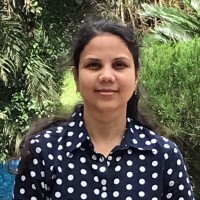Introduction
- Curious about what it takes to pass the Patent Agent Examination?
- Is this exam only for lawyers?
- What does a registered patent agent actually do?
If any of these questions hit home, you’re in the right spot!
The patent industry is buzzing with activity, especially with the rise of AI. In 2023 alone, India saw an incredible 90,000 patent filings—a 17% increase from previous years, which means nearly 250 new patents every day! This surge reflects a booming field full of innovation and a robust intellectual property (IP) rights framework.

With this rapid growth, there’s a growing demand for skilled patent agents. These professionals are crucial for guiding clients through the complex patent process and securing valuable innovations. If you’re interested in a career that’s both rewarding and dynamic, becoming a patent agent might be your perfect fit.
Why now is the time to become a patent agent?
As a patent agent, you’ll be at the heart of protecting groundbreaking ideas. You don’t have to change careers entirely; instead, you can build on your existing skills and knowledge.
Or if you are just starting out or looking to switch careers, being a patent agent has ample opportunities for you.
Our course will equip you with everything you need to succeed and make your mark in the booming patent industry.
India patent reports by Nasscom:

Who can be a patent agent?
In order to sit for the patent agent exam, following are the criteria that should be met by the candidate:
- He should be a citizen of India;
- Should have completed 21 years of age;
- He should have completed a degree in either Science, Engineering or Technology from any university established under law for the time being in force in the territory of India or should possess such other equivalent qualifications as specified by the Central Government; In this regard, final year students can also apply as long as they can produce their degree certificate with all the marks card within 2 months from the date of announcement of patent agent examination results.
- He should have either passed the qualifying examination prescribed for the purpose or should have functioned either as an examiner or discharged the functions of the Controller under section 73 or both, for a total period not less than 10 years provided that, at time of making the application for registration he has ceased to hold any such capacity;
- He should have paid the prescribed fees.
Prior to the 2005 amendment to the act, along with holding a degree specified in one of the field mentioned under clause (c), the person should also have had a degree in law. This requirement was removed through the 2005 amendment.
About the examination and examination pattern
The announcement of the examination is made on the website of the Office of Controller General of Patents, Ministry of commerce and industry several months in advance. Interested candidates are required to fill out the applications within the period specified in the announcement.
There is no restriction regarding the number of times one can apply for the examination. Hard Copy of various forms is to be sent at the nearest patent office along with other required documents as given on the website after all due formalities of the above application are completed.
The Indian patent examination is conducted once every year. The examination shall have the following structure:

Written exam (Paper 1and 2):
Format: The Paper 1 will have multiple choice questions whereas Paper 2 will have subjective questions pertaining to case studies and drafting claims and specifications. There will be difference sets for drafting questions for science and engineering background students.
Marks division:The marks division in relation to the same varies each year.
For example in 2023, Paper 1 was divided into Part A (60 marks), Part B (10 marks) & Part C (30 marks) whereas, the division in Paper 2 looked something like this: Part A (20 marks), Part B (30 marks) & Part C (50 Marks) wherein, all questions in Part A and B were compulsory but Part C comprised of Part CI of 20 marks and C2 of 30 marks, both having optional questions.
Syllabus: The first paper is based on the Patent Act and Rules while the second paper is more practical in nature relating to the drafting, interpretation of patent specifications and other descriptive questions.
Some examples of topics include:
Paper 1-
- Patent Filing in India
- Patent Opposition
- Compulsory License
- Infringement
- PCT Application and procedure
- Design rules
- Important case laws
Paper 2-
- Title, Abstract and Specification Drafting
- Importance of Patent Drawings
- Guidelines for Creating Effective Drawings
- Background and Prior Art
- Patent Claim Format
- Apparatus or device claims
- Method claims or process claims
- Product-by-process claims
- Drafting Amendments
- Making Amendments to Claims
- Procedures and Best Practices
- International Patent Drafting
- Differences in Drafting for Different Jurisdictions
Types of questions: Paper 1 consists of multiple choice questions that test the knowledge of the individual regarding the laws and rules.
For example, in 2023 it was asked:


In paper 2, the candidate’s capability to analyse and apply the knowledge is tested in the form of descriptive questions,
For example, questions like the following might be asked,


To understand the kind of drafting questions that might be asked, Part C of this previous sample paper can be referred to by clicking here- Paper 2, 2023
Qualifying criteria: A candidate is required to score a minimum of 50 marks in each paper to pass the examination. Therefore, to qualify, the person should be thorough with the acts, rules, practice and procedures of patenting. The time period granted to complete the paper and format of the question paper varies every year and can be seen in the announcement itself.
Oral exam (Viva voce)
If the candidate clears the written exam, a viva voce is conducted of such person comprising of 50 marks. This is the final stage of clearing the examination and becoming a Patent agent. The questions that are generally asked is based on the knowledge about the field. The candidate should also be mindful of its body language and self-presentation while appearing for the interview.
Overall qualifying criteria of the exam:
For a person to qualify as a patent agent he should secure an overall 60% aggregate of the total marks. That is out of the total 250 marks he/she should have in order to qualify to secure an aggregate of 150 marks or more.
What is the syllabus for the examination?
For 2025, the examination would broadly cover:
- Indian Patent Act 1970, and Patents Rules, 2003- All sections, rules, fee and forms of Indian Patent Act 1970.
- PCT practices and procedures, fee, timelines
- Patent specification drafting skills
- The Designs Act, 2000 and The Designs Rules, 2001
- IP Jurisprudence and Important case-laws
Career options after qualifying the exam
Becoming a Patent Agent opens up a wide range of career opportunities, allowing you to leverage your expertise without changing your field. Here are some exciting options you can pursue:
- Independent Practice: Work as a consultant to various companies, providing expert advice and services in patent law.
- Corporate Advisor: Offer specialized guidance on intellectual property matters to corporations.
- Law Firms: Join law firms as a Patent Agent or Technology Specialist, contributing your expertise to legal teams.
- Drafting Specialist: Work as a drafting expert or patent engineer, focusing on creating and reviewing patent documents.
- Patent Analytics: Take on roles in patent analytic companies or legal and knowledge process outsourcing firms, specializing in patent searches and landscape analysis.
- IP Management: Manage patent portfolios as an IP Manager within corporations.
- R&D Organizations: Provide patentability opinions and reports as an IP specialist in research and development organizations.
- Academic Roles: Teach patent law at universities or work as an IP Coordinator to identify and manage university-developed inventions.
- Technology Transfer: Facilitate technology transfer at research-based academic institutes.
- Patent Examination: Work as a Patent Examiner or Analyst with IP Offices, evaluating and processing patent applications.
- Industry Specific Roles: Engage with pharmaceutical, chemical, biotechnology industries, and defense research services (e.g., DRDO) in patent-related capacities.
- IP Facilitation: Contribute to IP facilitation centers and organizations like TIFAC, GIAN, or NIF.
- International and Government Bodies: Work with international organizations such as WIPO, or government institutes like CSIR. With a career as a Patent Agent, you have the flexibility to choose a path that aligns with your interests and expertise while making a significant impact in the field of intellectual property.
Every patent agent whose name is entered in the register is entitled to perform the following in the said fields:
- Conduct Different types of Patent searches including but not limited to novelty search, technology landscape, invalidation search, EOU (Evidence of use) search.
- Practice before the controller;
- applying for or obtaining patents in India or elsewhere;
- preparing specifications or other documents for prosecution in India or of any other country by way of PCT applications;
- giving advice other than of a scientific or technical nature as to the validity of patents or their infringement.
Certification
This course is recognized by the National Skill Development Corporation, a PPP under the Ministry of Skill Development and Entrepreneurship of the Government of India. You will receive a certificate cobranded by NSDC and Skill India on successful completion.
This is how the certificate from NSDC and Skill India will look as per the current applicable format (may change as per the approval authorities):

Faculty
Sutapa Jana
Registered patent agent, Acura IP services
Sneha Menon
Patent agent, Senior Associate at K&S Partners
Trupti Joshi
Consultant at K&S Partners
Kalyan Potukuchi
CEO / Director specializing in IP (Patent) Management and Project/Design Engineering at BKSAY WORKS PVT. LTD
Pavithra Ranganathan (Technology)
Technolegal Professional, Lawyer, Telecommunication Engineer, IP Enthusiast, Patent Agent, Canadian Immigration Law, Trademark Law, Contract Management
Sridevi Krishnan (Pharma)
Head-Corporate IP at Piramal Group, Certified Indian Patent Agent, Certified Indian Trademark Agent
Ilanangai Ponnambalam (Mechanical, Bio-tech)
IPR Consultant /Patent Agent
Note:
This is an indicative list of our guest faculty members and not an exhaustive list. We may change the faculty members at any point based on availability.
Course Plan
Above prices are inclusive of all applicable taxes and charges.
 Standard
Standard
RS. 52000
incl. of all charges
View details
5 online practise live classes/ sessions
1 online live session per week
Over 1000 MCQs to practise
Viva preparation support
Access to course material and live lectures for five years.
Group and personal mentoring sessions for all the subjects and viva.
Get digital access to entire study material
Access on LMS, Android & iOS app
Instructor feedback on assignments
Doubt clearing through one on one calls
Instructor led course with online live classes
CV enhancement
Coaching for professional networking
Internship & job support
Personalised freelancing support
Top performers are recommended for jobs and client opportunities


































 ADDICTIVE LEARNING TECHNOLOGY LIMITED
ADDICTIVE LEARNING TECHNOLOGY LIMITED











